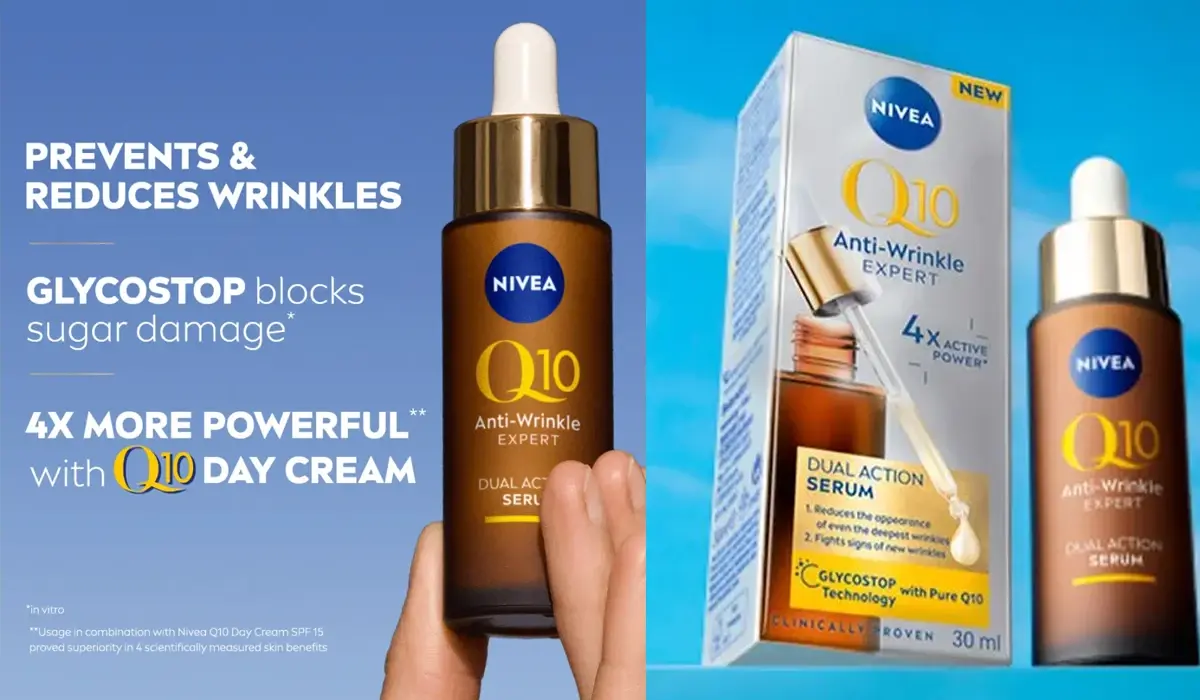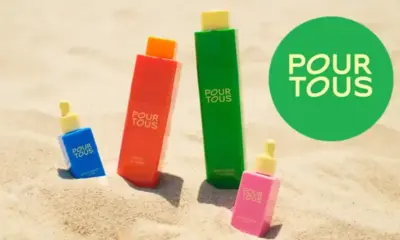Body and Skin Care
Nivea introduces Q10 Dual Action serum to make anti-glycation benefits widely accessible
Beiersdorf has created a facial serum designed to combat sugar-induced skin damage, aiming to make anti-glycation skincare widely accessible and capitalizing on the growing trend of preventative beauty throughout Europe.

Launched under Nivea, the Q10 Dual Action serum will be available across Europe and select global markets. This product is the culmination of over a decade of research and development, both in-house and through collaborations.
The serum combines Beiersdorf‘s patented coenzyme Q10 with a newly patented ingredient, NAHP, which is branded as Glycostop. This innovative formula specifically targets sugar-induced skin aging and wrinkle formation. Its primary function is to prevent protein glycation in the dermis, thereby protecting collagen and elastin from sugar damage—a process known to contribute to oxidative stress, inflammation, and decreased skin elasticity. The Q10 Dual Action serum will complement Nivea’s existing Q10 Anti-Wrinkle Power day cream.
Focus on Skin Glycation
Dr. Julia Weise, laboratory manager for biological testing at Beiersdorf, emphasized the growing importance of addressing skin glycation in the anti-aging market. She noted, “Many proteins in the skin, particularly long-lasting ones, undergo glycation as we age.” This is especially true for collagen and elastin fibers, which constitute a significant portion of the dermis and are particularly vulnerable to accumulated glycation over time.
This understanding prompted Beiersdorf’s research team to identify an active ingredient that could halt the glycation process. After evaluating around 1,700 potential actives, they discovered that NAHP (N-acetyl-L-hydroxyproline), a naturally occurring derivative of the amino acid proline, effectively neutralizes sugar molecules in the skin before they can bind to proteins, reducing the glycation reaction by up to 68%. This discovery presents a compelling option for topical skincare formulations.
The NAHP active, or Glycostop, works synergistically with coenzyme Q10, which energizes the skin and shields it from free radicals. Together, they aim to visibly reduce existing wrinkles while preventing the formation of new ones, harnessing the power of “two highly potent ingredients.”
A Preventative Approach to Skincare
Nivea’s Q10 Dual Action serum primarily targets female consumers aged 30 and older, but Weise believes it will also attract a younger audience, particularly women in their mid-20s. “Serums are currently the trend for performance products, especially in facial care, and they are often favored by younger consumers,” she stated.
The rising interest in preventative skincare, especially among European consumers inspired by trends from Asia, further supports this strategy. “Consumers today are increasingly aware of skincare issues at an earlier age and are eager to invest in prevention through anti-aging and UV protection products,” Weise explained.
With this launch, Nivea aims to educate younger European consumers about the significance of preventative skincare while creating a more accessible market. “We want to introduce this innovation to the masses,” Weise added.
“Glycation is already a well-recognized issue in Asia, where numerous products boast anti-glycation benefits. While it is present in Europe’s premium segment, Beiersdorf, with Nivea, seeks to bring this anti-glycation technology to the mass market. Nivea represents accessibility, and we want to lead the way.”





















